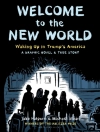Often described as the Great American Novel, ‘The Great Gatsby’ – F. Scott Fitzgerald’s masterpiece of the Jazz Age – has become one of the most beloved and revered books of the 20th Century. Narrated by the enigmatic Nick Carraway, the story takes place in the well-to-do section of Long Island, New York, where socialites and millionaires cavort about on their yachts and hydroplanes, oblivious to the day-to-day drudgery of the working class drones they motor past each day.
Nick, renting a small cottage for the summer, is drawn into the social circle of his next-door neighbor, the handsome and mysterious Jay Gatsby. As he grows closer to Gatsby, Nick comes to learn that the reclusive young millionaire is pining for, and hoping to reclaim, his old flame Daisy Buchanan, who lives directly across the bay with her abrasive and unfaithful husband Tom.
Set amid wild, Jazz Age parties, flowing champagne, speedy sports cars and dark, hidden secrets, ‘The Great Gatsby’ has earned a well-deserved place in the canon of American literature. At once a celebration of the free-spirited and brightly-lit era of the Roaring Twenties and a penetrating examination of the heartlessness of its inhabitants, ‘Gatsby’ is one of the most well-read and analyzed novels in history and the subject of numerous adaptations for the stage and screen.
About the author
F. Scott Fitzgerald was born Francis Scott Key Fitzgerald, on September 24, 1896 to Edward and Mary (‘Molly’) Fitzgerald in St. Paul, Minnesota.
His father worked for Procter & Gamble and young ‘Scott’ (as he was called) shuttled between Buffalo, New York, West Virginia and Minnesota during his early life, eventually enrolling at Princeton.
An author from an early age, Fitzgerald continued his literary pursuits at college and during his time in the Army. While enlisted, he met Zelda Sayre, whom he eventually married after a prolonged engagement.
Fitzgerald began a career in advertising at Barron Collier, but struggled to remain financially solvent. He continued to write, finally revising an earlier novel into his first major publication, ‘This Side of Paradise, ‘ which was an immediate success. He continued writing short stories for a number of literary magazines, sometimes selling them to Hollywood studios to be adapted into films.
Traveling to and from Europe, Fitzgerald struck up a friendship with a number of American expatriates living in Paris, most notably Ernest Hemingway, who often chided Fitzgerald for his ‘whoring’ his stories and novels to Hollywood.
Zelda suffered from mental illness and Fitzgerald often drank to excess, leading to a volatile relationship. They relocated to Los Angeles so that Fitzgerald could continue working on movies, but the trip was brief and only exacerbated Zelda’s emotional and mental issues. Fitzerald would eventually have Zelda placed in a series of mental hospitals, in which she remained – on and off -for the rest of her life.
Fitzgerald returned to Hollywood in the 1930’s and enjoyed a lucrative career writing screenplays and contributing dialogue to various features for MGM, but his drinking worsened and led to his own mental deterioration. He suffered from tuberculosis and heart disease in his 30’s, eventually dying of a heart attack at 44.
Ironically, Fitzgerald’s greatest novel, ‘The Great Gatsby, ‘ published in 1925, would not be recognized and revered as a literary masterpiece until well after Fitzgerald’s death.
Zelda died seven years after Fitzgerald, when a hospital where she was receiving treatment burned to the ground.












